Aerosensor has launched its Aerodynamic Cycling System (ACS), a suite of products aimed at allowing individual riders to measure their aerodynamic drag in real-time, on the road or on the track.
The Aerosensor ACS consists of three devices: the Aerosensor, the Aerobody and the Aerodrome.
The Aerosensor is a handlebar-mounted probe designed to measure wind speed and angle to +/- 0.1 per cent accuracy.
When this data is combined with power data and tyre rolling resistance data, the Aerosensor probe can calculate a rider’s real-time coefficient of aerodynamic drag (CdA) and display it on a Garmin Edge bike computer via the Aerosensor Garmin Connect IQ app.
The Aerobody is a stem-mounted device which uses lasers to measure a rider’s body position, to ensure a consistent position is held during testing or riding.
Lastly, the Aerodrome is a wireless lap trigger designed to track lap times with “millisecond accuracy”.
Aerosensor says the Aerodynamic Cycling System can be used on the road to determine differences in CdA of “around +/-1.5 per cent”, or on a velodrome track to +/- 0.5 per cent.
Aerosensor
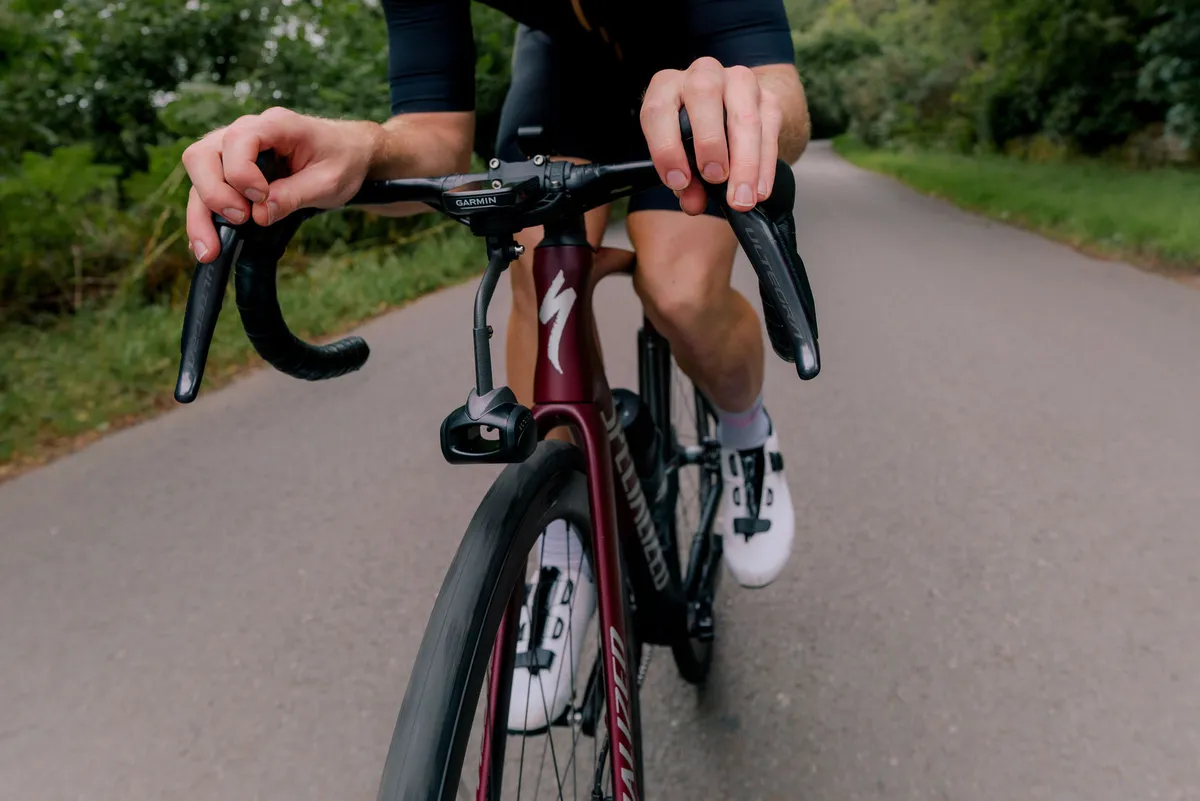
The Aerosensor itself is the heart of the Aerodynamic Cycling System.
It measures wind speed, wind angle and altitude, then combines this with data from a speed sensor and a power meter to calculate a live CdA.
This figure is then transmitted to a Garmin Edge bike computer via ANT+ where it can be displayed in real-time or recorded to the ride’s FIT file.
Currently, the Aerosensor is only compatible with Garmin Edge bike computers. It can be mounted to a handlebar using a GoPro-style mount.
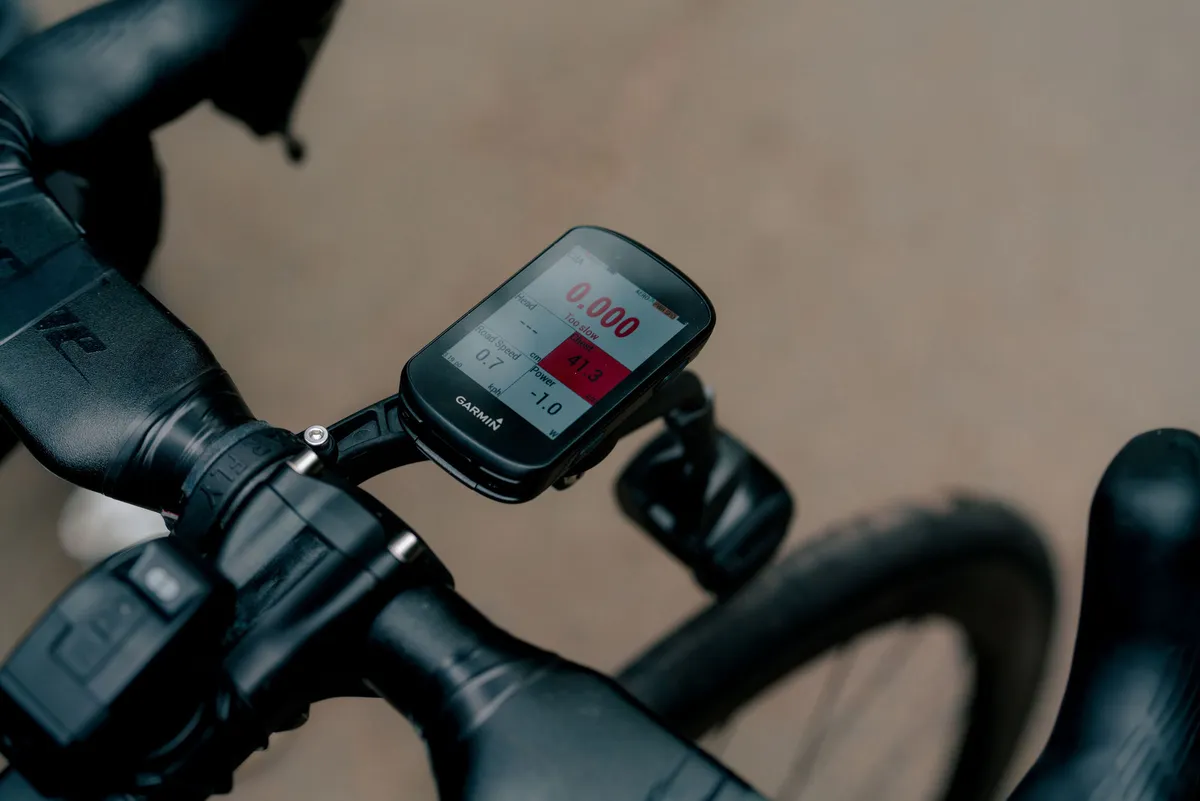
Developed by former Formula 1 aerodynamicist, Dr Barney Garrood, the Aerosensor uses a patented probe design which is said to provide robust data in wind angles of up to 50 degrees of yaw.
This enables “peerless repeatability in practically all wind conditions”, according to Aerosensor.
The latter point is key, as other existing products on the market, such as the Noti Konect or Velocomp Aeropod, typically require you to test on wind-free days for good results.
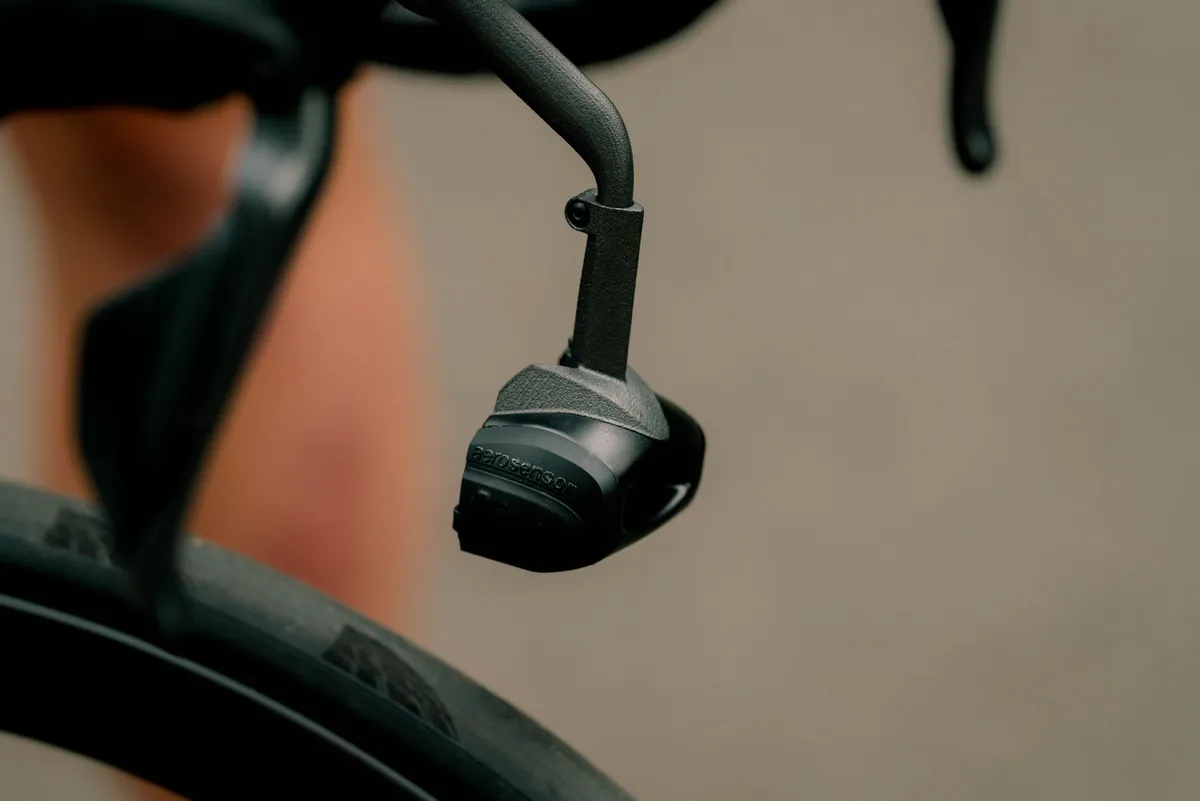
According to Dr Garrood, tyre rolling resistance data can be gleaned from independent sources to enable the Aerosensor to account for this variable.
When real-world rolling resistance cannot be precisely calculated, Dr Garrood says assuming a fixed figure within the right ballpark would not affect the repeatability of test results.
The Aerosensor costs £850.
Aerobody
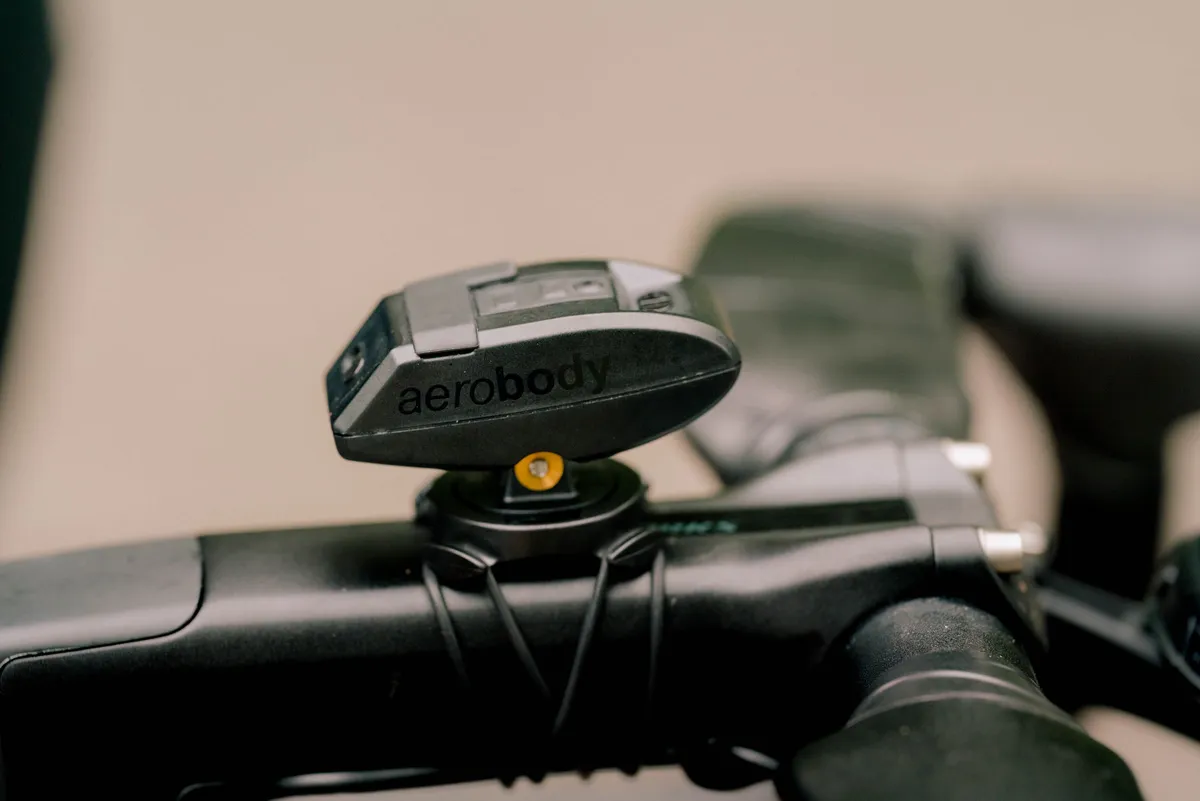
When doing comparative tests of body positions or equipment, maintaining a consistent position on the bike is crucial for getting good results.
This is because any differences due to changes in body position are likely to outweigh those found between two different pieces of equipment, such as wheelsets or aero helmets.
Likewise, once you’ve found an aerodynamic riding position, it’s important to know whether this can actually be maintained while riding and when fatigued.
In response to this, Aerosensor has developed the Aerobody.
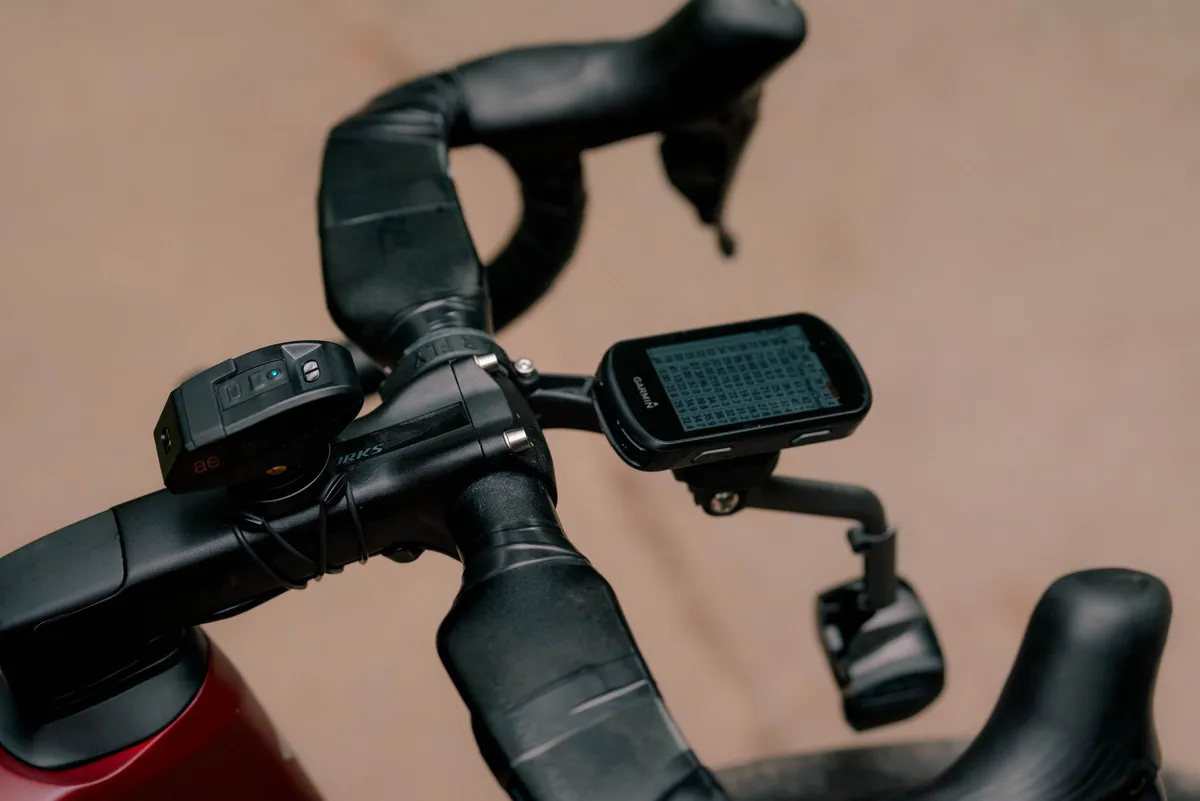
The Aerobody mounts to your stem like a band-on bike computer mount and uses optical sensors to measure the position of your head, torso and abdomen.
If your body position then deviates from the predetermined starting point while riding, the Aerobody will notify you via the Aerosensor Garmin Connect IQ app.
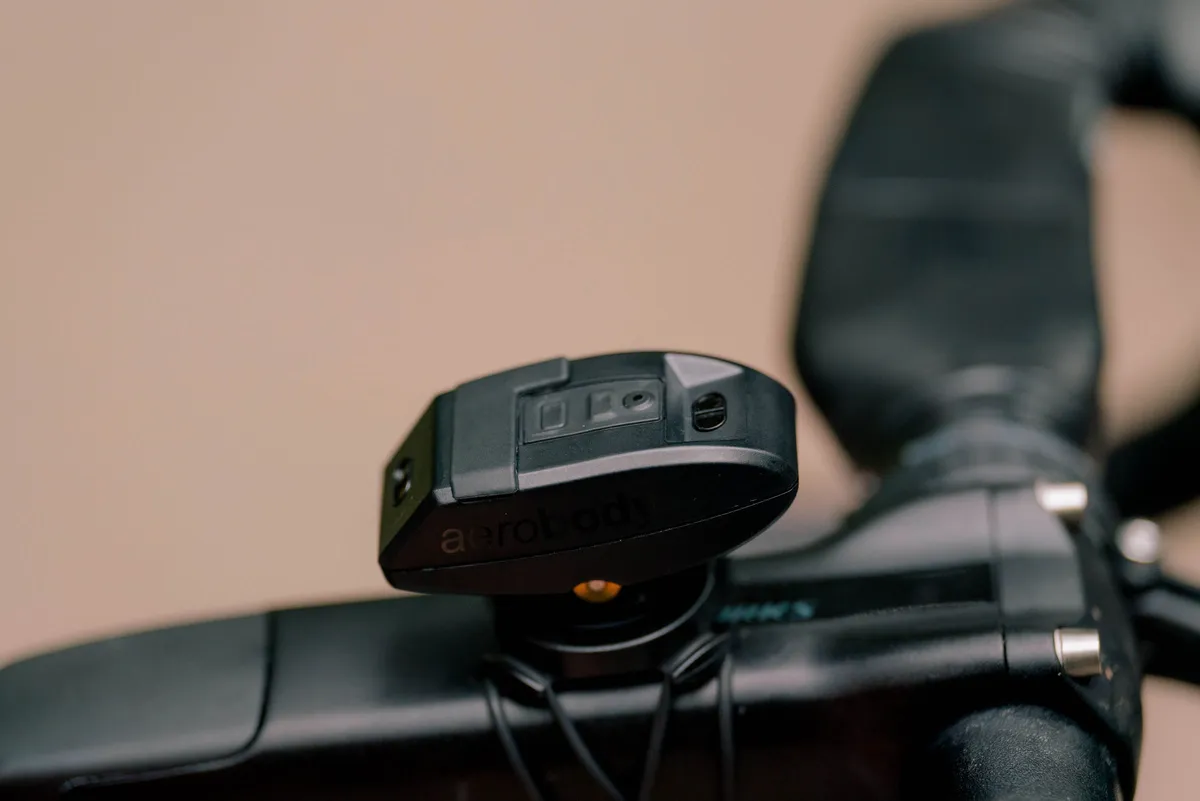
According to Aerosensor, the Aerobody can detect changes in position of 1mm.
Body position data is also recorded to the ride’s FIT file so it can be compared to aero drag data post-ride.
The Aerobody costs £365.
Aerodrome
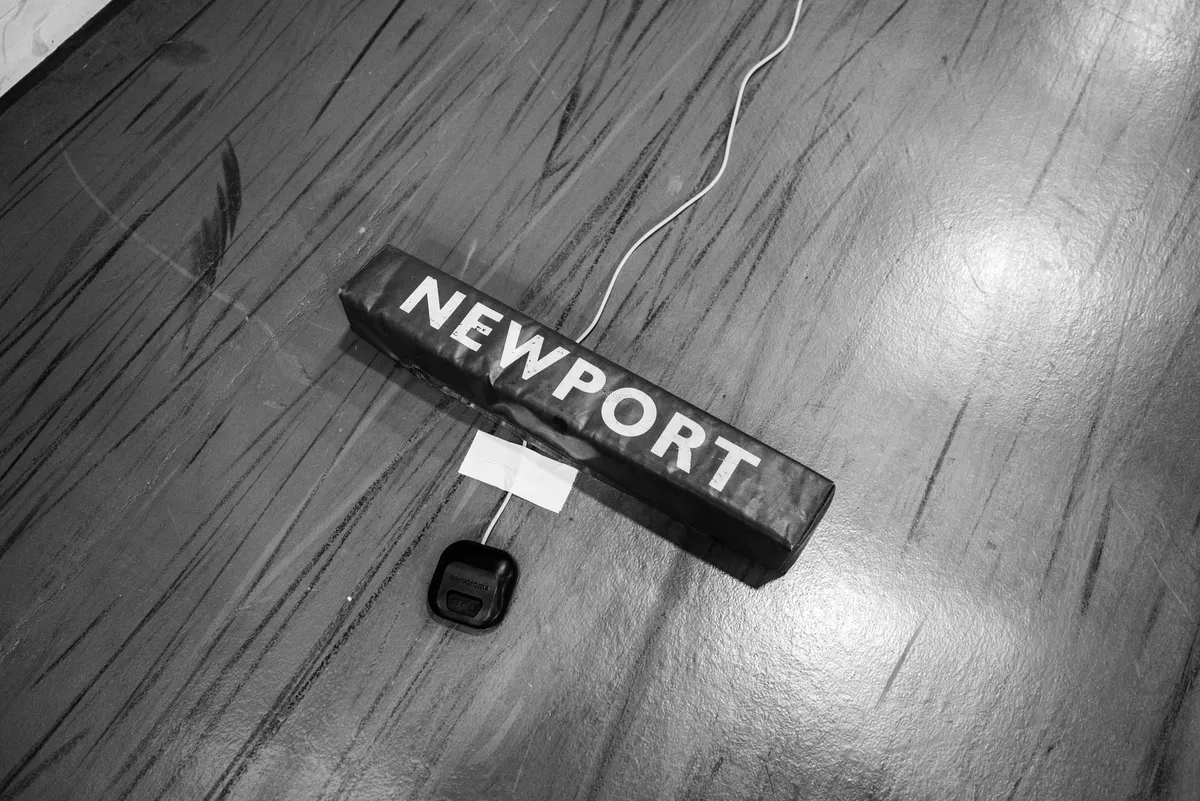
According to Aerosensor, having accurate lap data can “significantly improve” the accuracy and repeatability of aerodynamic test data.
The Aerodrome uses a tape switch – a pressure-sensitive switch that is ridden over to trigger a lap – with a claimed “sub-millisecond accuracy”.
This data is then transmitted wirelessly to the Aerosensor, which then transmits it to the Aerosensor Garmin Connect IQ app alongside the aero data, where it can offer lap-based CdA averages.
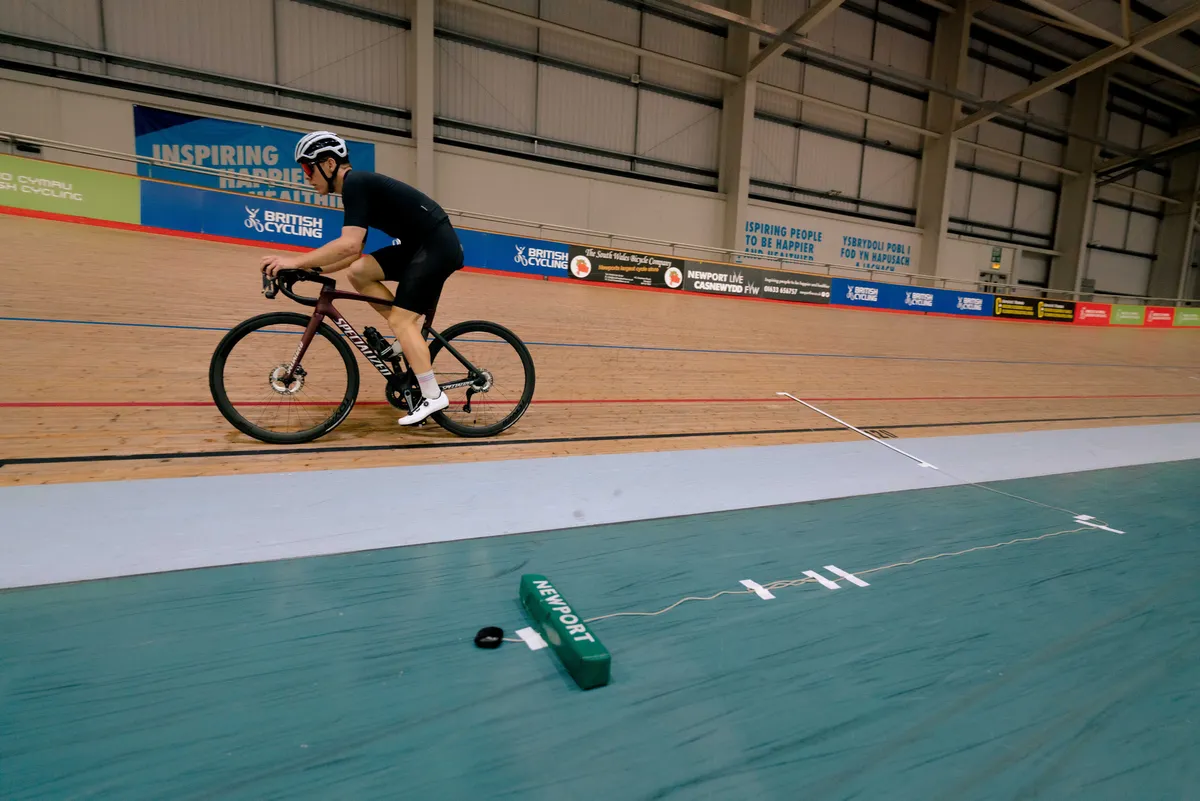
According to Aerosensor, the Aerodrome can be used on the track or on the road.
The Aerodrome costs £525.
Aerosensor Aerodynamic Cycling System details and pricing
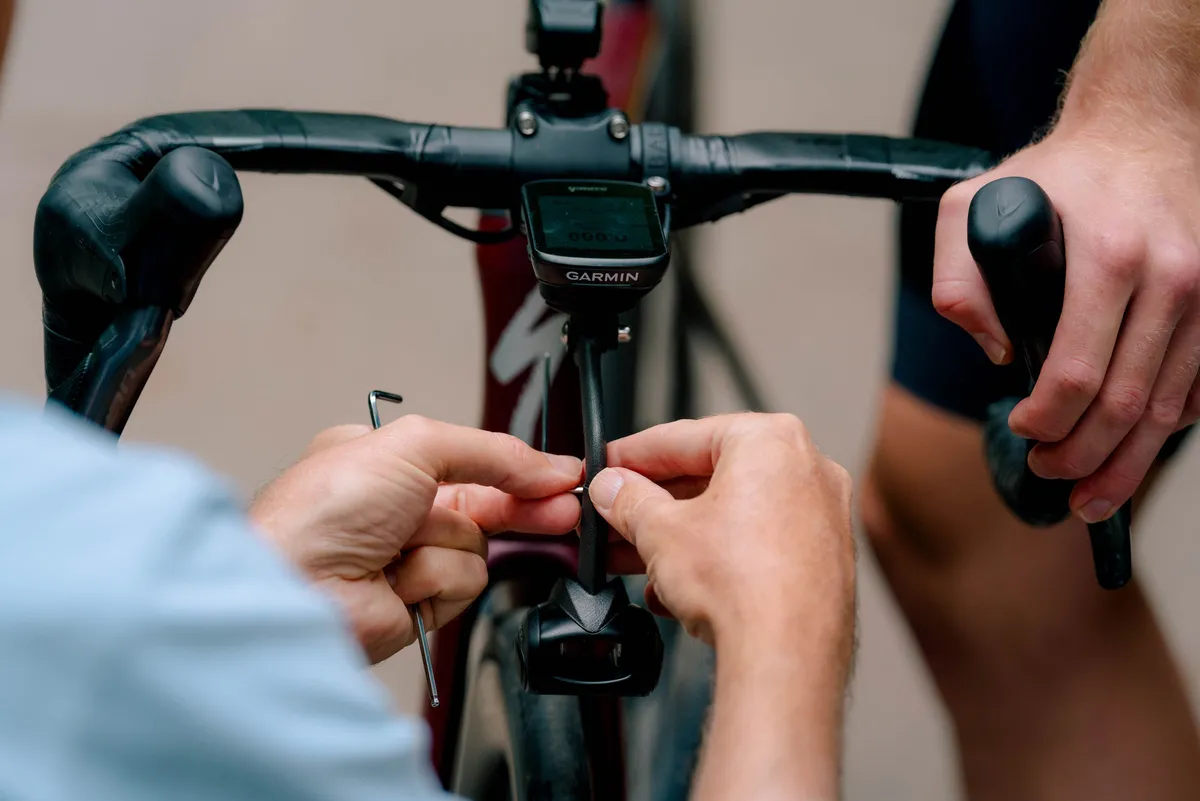
According to Dr Garrood, one of the key advantages of the Aerosensor ACS is that it’s relatively easy to use.
It’s claimed a rider can be up and running with the Aerosensor within 10 minutes of unboxing it.
Dr Garrood says the device is able to automatically calibrate itself while you ride, meaning there isn’t a need to perform a specific calibration protocol prior to testing, as with some competitor devices.
The Aerosensor ACS can be purchased directly from Aerosensor, as individual components or as part of three system bundles.
- Aerosensor ACS Complete Package: Aerosensor, Aerobody and Aerodrome – £1,4780
- Aerosensor ACS Body Package: Aerosensor and Aerobody – £1,035
- Aoersensor ACS Track Package: Aerosensor and Aerodrome – £1,170
